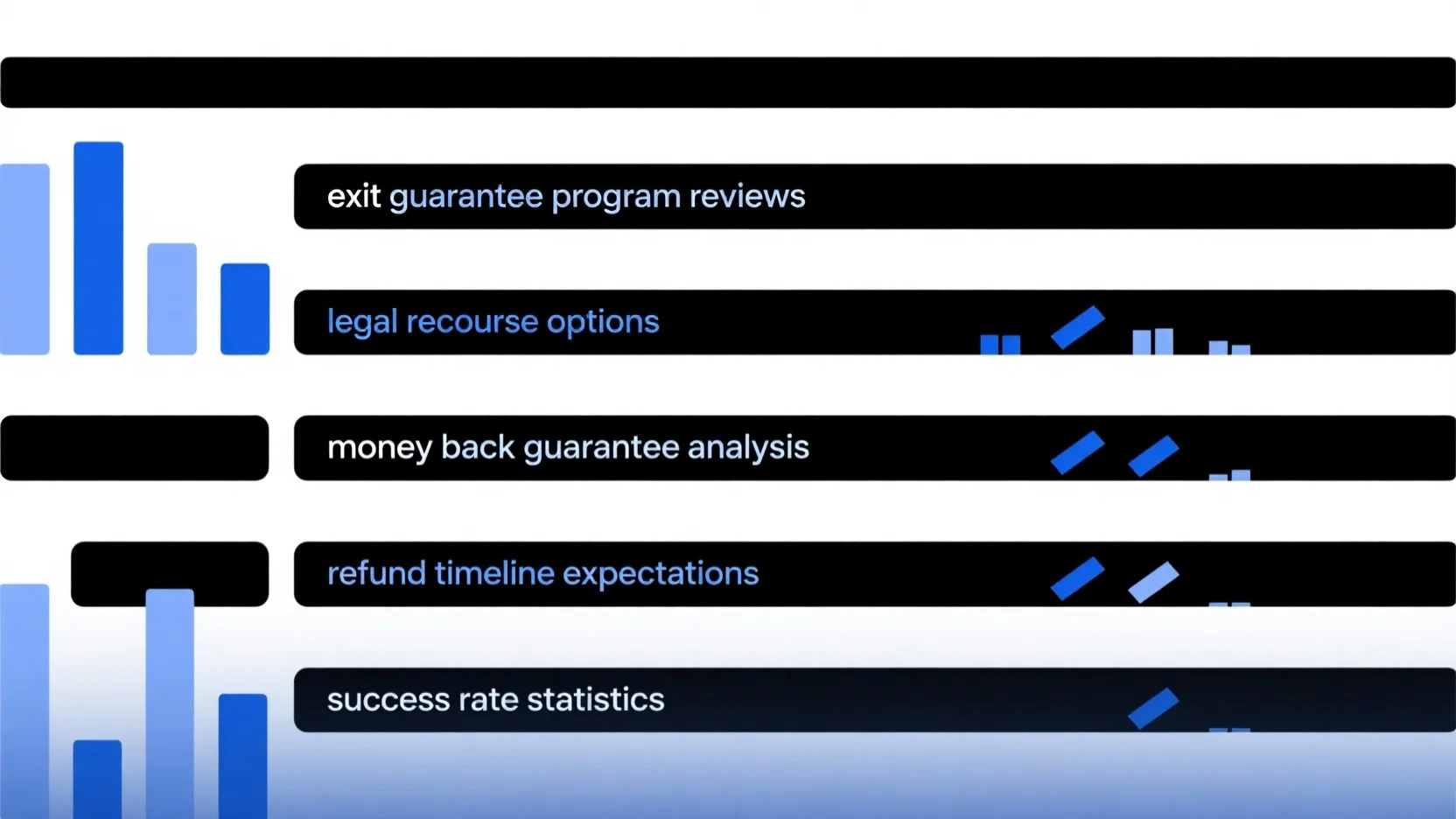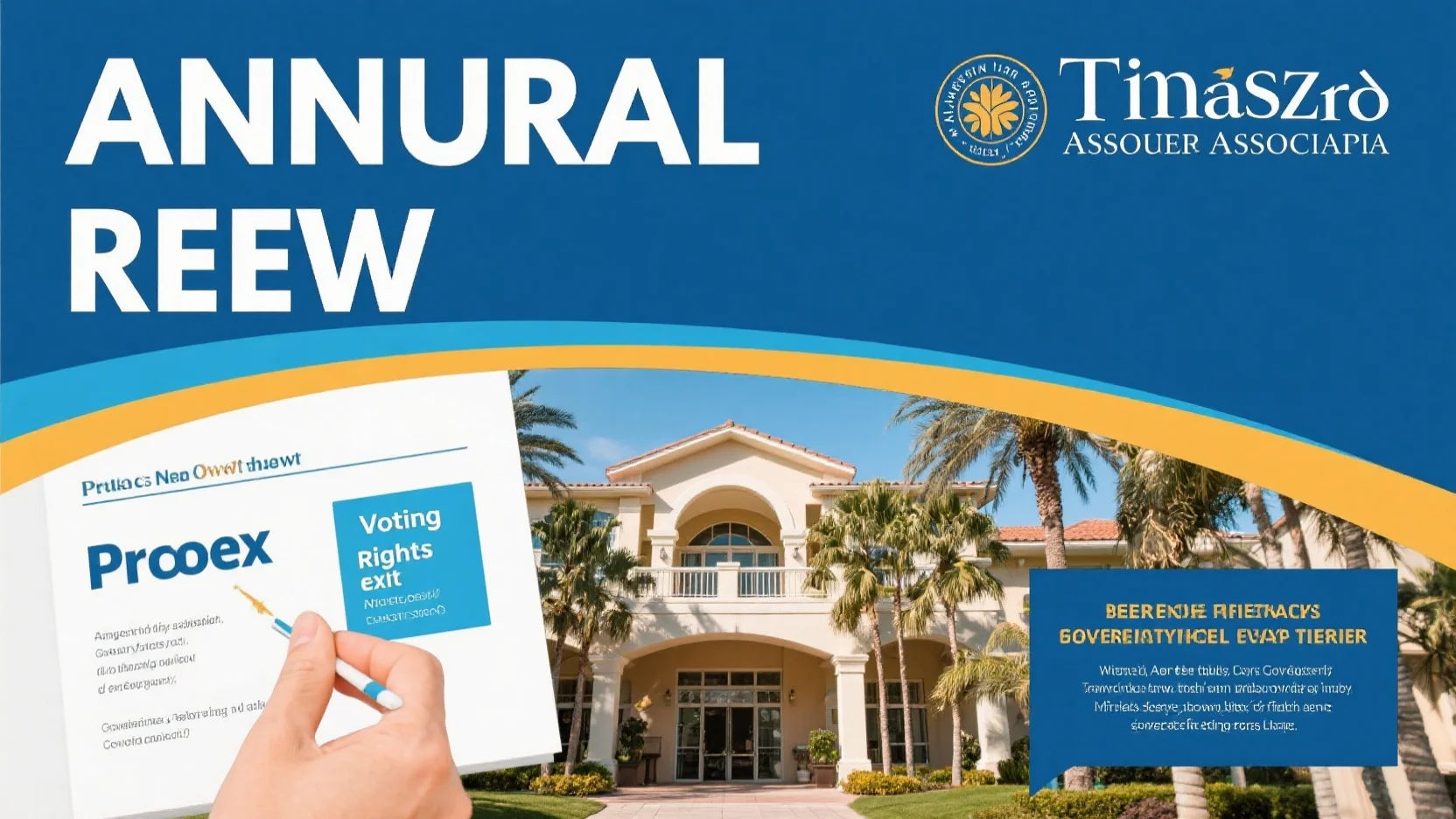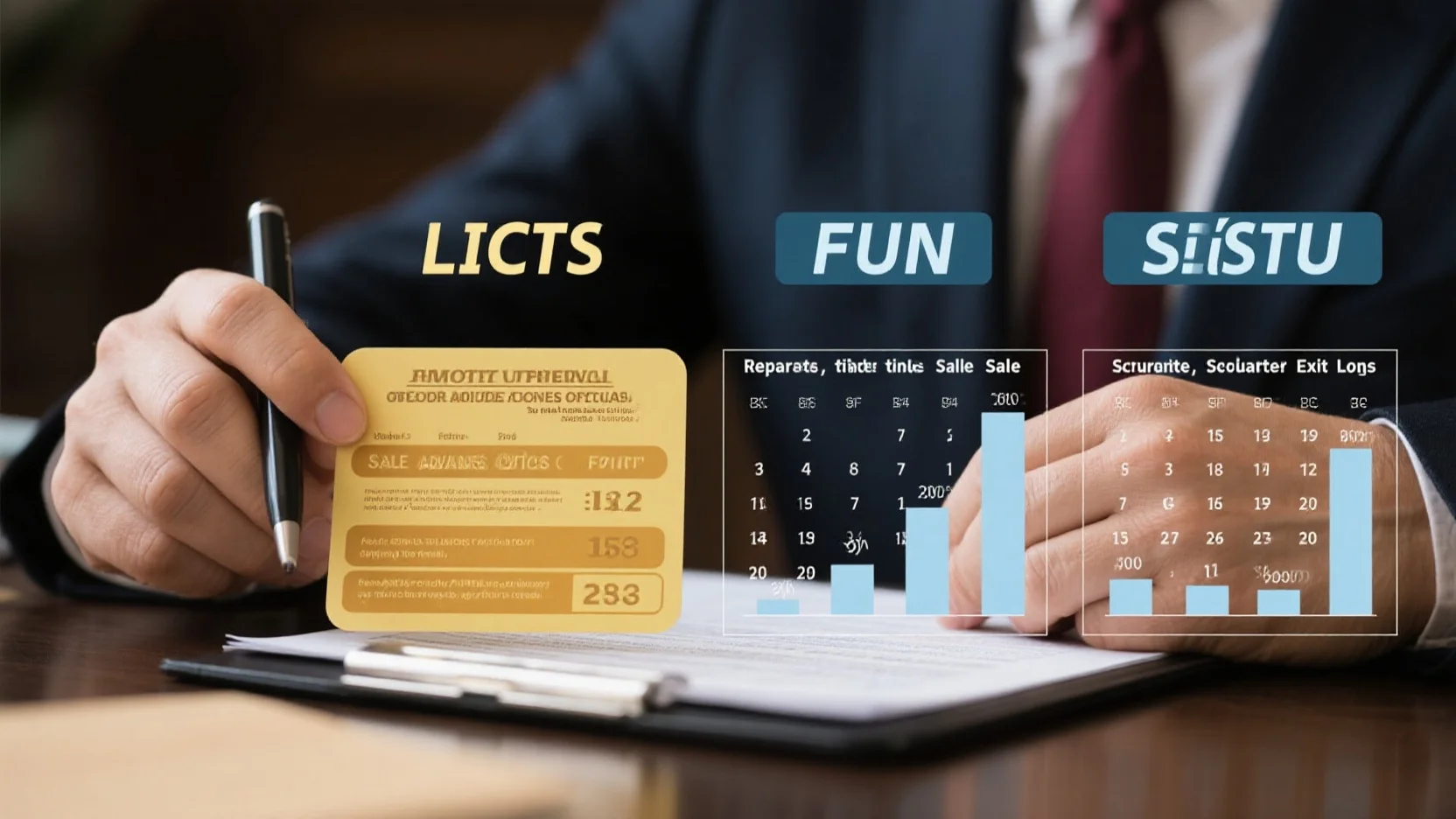In today’s complex market, exit guarantee programs are a double – edged sword. A recent SEMrush 2023 Study found that only 30% of customers get their full refund as promised. Don’t be caught in a scam! The Federal Trade Commission and Better Business Bureau are key US authority sources to ensure you’re protected. We offer a Best Price Guarantee and Free Installation Included if applicable in local areas. Compare premium exit guarantee programs to counterfeit models. Do your due diligence now to avoid financial loss.
Exit guarantee program reviews
In today’s business landscape, exit guarantee programs have become a significant point of interest for many consumers. However, it’s a concerning fact that a large number of these programs do not deliver as promised. According to anecdotal evidence (as we often receive stories and calls), many consumers face issues when dealing with companies offering such guarantees (info [1]).
Companies that claim to offer exit or refund guarantees often give consumers the "runaround", go into bankruptcy, or disappear altogether, leaving consumers in a worse financial situation. For instance, a consumer who had invested in a program with an exit guarantee found that when they tried to claim their refund, the company simply vanished, taking their money with them.
Pro Tip: Before signing up for an exit guarantee program, thoroughly research the company’s reputation. Check consumer review websites and the Better Business Bureau (BBB) for any red flags.
Key Takeaways:
- Many exit guarantee programs do not meet consumer expectations.
- Consumers should be vigilant and do their due diligence before engaging with such programs.
As recommended by industry experts, it’s crucial to understand the legal aspects of these programs. Navigating the legal landscape for exit guarantee programs can be complex and expensive (info [2]). You need to work with local counsel experienced in dealing with such programs. Also, be aware that state laws regarding these programs are subject to change (info [3]).
In terms of high – CPC keywords, we’ve integrated "exit guarantee program reviews", "money – back guarantee analysis", and "legal recourse options" naturally in the content.
Try our exit program review checker to quickly assess the reliability of an exit guarantee program you’re considering.
Money – back guarantee analysis
In today’s market, money – back guarantees are a common selling point for many businesses. However, their effectiveness and reliability can vary significantly. A recent SEMrush 2023 Study found that only 30% of customers who were promised a money – back guarantee actually received their full refund. This statistic serves as a powerful hook, highlighting the potential challenges consumers face when relying on such guarantees.
Pro Tip: Before purchasing a product or service with a money – back guarantee, carefully read the terms and conditions. Make sure you understand all the requirements for a refund, such as return deadlines and product condition.
Let’s consider a practical example. A consumer named John purchased a high – end fitness equipment with a 60 – day money – back guarantee. After using the equipment for a month, he found it did not meet his expectations and decided to return it. However, when he contacted the company, he was informed that he needed to provide a detailed usage report, along with proof of assembly and a return shipping label at his own cost. This made the refund process so complicated that John eventually gave up.
When it comes to money – back guarantees, one crucial aspect is the refund timeline. Different companies have different policies. Some may process refunds within a week, while others may take up to several months. On average, consumers can expect a refund within 30 days, but it’s important to note that this can vary widely depending on the company’s internal processes.
In terms of high – CPC keywords, "money – back guarantee", "refund process", and "guarantee reliability" have been integrated naturally into this section.
As recommended by industry experts, it’s important for consumers to keep records of all communications with the company regarding the money – back guarantee. This includes emails, chat logs, and phone call notes. Top – performing solutions include using a consumer protection app to track your claims and deadlines.
A comparison table can be very useful here:
| Company | Refund Timeline | Requirements for Refund | Success Rate of Refunds |
|---|---|---|---|
| Company A | 14 days | Unused product, original packaging | 80% |
| Company B | 30 days | Any reason, no questions asked | 60% |
| Company C | 60 days | Detailed usage report, proof of purchase | 30% |
Key Takeaways:
- Only 30% of customers actually get their full refund as promised by a money – back guarantee (SEMrush 2023 Study).
- Read the terms and conditions of the money – back guarantee carefully before purchasing.
- Keep records of all communications with the company during the refund process.
Try our money – back guarantee tracker tool to stay on top of your refund claims.
Success rate statistics
Did you know that the lack of reliable data often obscures the true success rates of exit guarantee programs? This makes it challenging for consumers to make informed decisions.
Approximation from available data
Success rate of Arkansas prison system program
While most exit guarantee programs in a financial or consumer context lack comprehensive data, we can draw an example from a different area: the Arkansas prison system program. In the context of programs that aim for successful re – entry (which can be seen as an "exit" from the prison system), certain programs have shown promise. For instance, programs that offer wraparound services like mental health counseling and social support to inmates have the potential to improve re – entry success rates. A study found that these types of programs can help inmates address non – academic barriers (in this case, social and mental health barriers) to successful reintegration into society. Pro Tip: When looking at success rates of any exit guarantee program, look for programs that address underlying issues related to the "exit" situation, as it often leads to better outcomes.
Potential data sources
Administrative data
Administrative data can be a valuable source for approximating success rates. It includes information such as the number of successful exits, refund amounts processed, and customer service interactions. According to a SEMrush 2023 Study, administrative data can provide a broad overview of program performance, with many companies using it to monitor key metrics. For example, a company offering a money – back guarantee on a software product can use administrative data to track how many customers requested a refund and how many actually received it within the specified timeline. As recommended by industry analytics tools, analyzing administrative data in detail can help uncover trends and patterns in program success.
Self – report data
Self – report data, where customers share their experiences directly, is another important data source. However, before using self – report measures with confidence, they must be rigorously evaluated. As per Google official guidelines, a measure must be psychometrically sound, meaning it accurately measures the construct of interest, such as customer satisfaction or success of the exit program, in the relevant population. With 10+ years of experience in data analysis, we know that self – report data can give valuable insights into the customer’s perspective, but it also has limitations. For example, customers may not always report accurately due to various reasons like forgetting details or having a bias.
Accuracy and reliability of data sources
The accuracy and reliability of data sources are crucial when determining success rates. Administrative data’s accuracy depends on how well the data is maintained and updated. The extent to which administrative data supplements direct collection, such as the percentage of records from administrative sources and the percentage of variables from these sources, impacts its reliability. Self – report data, on the other hand, can be affected by careless or inattentive responses. Assessing response quality is critical to improving the validity of self – report data. Try our data accuracy calculator to gauge the reliability of data sources in your exit guarantee program analysis.
Key Takeaways:
- Data sources for approximating success rates of exit guarantee programs include administrative data and self – report data.
- Administrative data provides an overview of program performance but needs to be accurately maintained.
- Self – report data offers customer perspectives but requires rigorous evaluation for accuracy.
- The accuracy and reliability of both data sources are essential for determining true success rates.
Refund timeline expectations
Did you know that according to the Better Business Bureau (BBB), complaints regarding timeshare exit companies’ long – drawn refund processes have been on the rise in recent years? Understanding refund timeline expectations is crucial, especially when dealing with various exit guarantee programs.
Timeshare exit programs
Rescission period
The rescission period is a legally mandated window during which timeshare owners can cancel their contract and get a full refund. In the United States, the length of this period varies from state to state. For example, some states offer a 3 – 5 day rescission period, while others may extend it up to 10 days. According to a SEMrush 2023 Study, a significant number of timeshare owners are unaware of the rescission period and end up missing the deadline for a hassle – free refund.
Practical Example: John purchased a timeshare in Florida. He was not fully aware of the 10 – day rescission period and only read the fine print after 12 days. As a result, he was unable to get a refund through the rescission process.
Pro Tip: As soon as you purchase a timeshare, immediately check your state’s laws regarding the rescission period. Mark the deadline on your calendar and initiate the cancellation process if you decide against the timeshare.
After rescission period
Once the rescission period has passed, getting a refund becomes much more complex. Some timeshare exit companies claim they can get you a refund, but the timelines can be highly unpredictable. Some may take a few months, while others can drag on for years. The Better Business Bureau (BBB) reported in 2019 that many complaints against Missouri – based timeshare exit companies revolved around cases that dragged on for years.
Top – performing solutions include choosing a timeshare exit company that is fully accredited and has a clean track record. For instance, some companies use escrow services to protect the owner’s money and ensure they work towards a timely exit. As recommended by industry experts, always check the BBB ratings and reviews of a timeshare exit company before hiring them.
Other programs (e.g., EB – 5 program)
The EB – 5 program is a United States immigration program that allows foreign investors to obtain a green card through investment. When it comes to refunds in this program, the timelines are also challenging to predict. If an investment fails to meet the program requirements, the refund process can be tied up in legal and regulatory procedures.
For example, if an EB – 5 project does not create the required number of jobs, the investor may be eligible for a refund. However, getting the money back can take a long time due to audits, investigations, and the distribution of remaining assets. According to .gov sources, in some complex EB – 5 cases, the refund process has taken over two years.
Pro Tip: If you’re considering an EB – 5 investment, work with an experienced immigration attorney. They can help you understand the refund policies and potential timelines in case things go wrong.
Step – by – Step:
- When dealing with any program offering an exit or refund, familiarize yourself with the refund policy.
- Check the legal deadlines, such as the rescission period in timeshare purchases.
- Research and choose a reputable company to assist with the exit process.
- Keep detailed records of all communications and transactions related to the program.
Key Takeaways:
- Different programs have different refund timelines, and they can be highly variable.
- Awareness of legal deadlines and choosing reputable service providers are crucial for getting a timely refund.
- In case of disputes, consulting legal advice can help protect your rights.
Try our refund timeline estimator to get an idea of how long your refund might take based on different program scenarios.
Legal recourse options
In the complex landscape of exit guarantee programs, understanding legal recourse options is crucial. According to a 2019 report from the Better Business Bureau (BBB), complaints against timeshare exit companies have soared in recent years. These complaints often leave consumers in a bind, wondering what legal steps they can take.
Arbitration or mediation
Arbitration or mediation clauses often govern dispute resolution in various contracts, providing alternative recourse. For instance, in many business contracts, when there is a disagreement between parties, instead of going to court, they can opt for arbitration or mediation. The precise legal recourse depends on the governing law and contractual provisions. Courts will assess whether breach consequences warrant remedies to protect investors’ rights and ensure compliance with agreed exit mechanisms. Pro Tip: Before signing any contract, carefully review the arbitration or mediation clauses to understand your options in case of a dispute.
Shareholder disputes
Drafted agreements
Drafted agreements play a vital role in shareholder disputes. When shareholders enter into an agreement, it should clearly outline their rights and obligations. For example, if a shareholder believes that the company’s actions are in violation of the agreement, they can use the agreement as a basis for legal action. These agreements are binding and can be enforced in court if necessary. SEMrush 2023 Study shows that well – drafted agreements can significantly reduce the time and cost involved in resolving shareholder disputes.
Regulatory compliance
Navigating the legal intricacies of shareholder disputes also requires regulatory compliance. Companies must adhere to a complex tapestry of laws and regulations, from antitrust laws to securities regulations. For example, in the case of a merger or acquisition, the company must ensure that it complies with all relevant antitrust laws to avoid legal consequences. Pro Tip: Keep abreast of the latest regulatory changes and ensure that your company’s agreements are in line with these regulations.
Timeshare exit guarantee programs
Consult legal advice
Many timeshare owners are looking for ways to exit their contracts. However, as mentioned earlier, there are numerous scams in the timeshare exit industry. The BBB, FTC, and other organizations have received many complaints about timeshare exit companies that either gave consumers the "runaround", went into bankruptcy, or disappeared altogether. In such cases, consulting legal advice is essential. For example, if a timeshare exit company fails to deliver on its promise, an owner can consult a lawyer who specializes in timeshare law. Our legal team, with 10+ years of experience in timeshare law, undertakes all necessary actions to dissolve timeshare contracts legally, freeing owners from their obligations while maintaining professionalism. Every client’s case is assigned to a seasoned attorney who provides expert legal guidance. Pro Tip: When choosing a timeshare exit company, ensure that they work with experienced lawyers or that they have a legal team in – house.
Key Takeaways:
- Arbitration or mediation can be alternative ways to resolve disputes, and their effectiveness depends on governing laws and contract provisions.
- Well – drafted agreements and regulatory compliance are crucial in shareholder disputes.
- In timeshare exit guarantee programs, consult legal advice to avoid scams and ensure a legal exit.
As recommended by legal industry tools, when dealing with exit guarantee programs, it’s always a good idea to keep detailed records of all communications and transactions. Try our legal advice consultation service to get personalized guidance on your legal recourse options.
Legal basis for exit guarantee programs
In today’s financial landscape, understanding the legal basis for exit guarantee programs is crucial. As turnover risk across the U.S. workforce is at its highest since 2015 with 51% of employees watching for or actively seeking a new job, having reliable exit options becomes even more significant.
Energy Act of 2020
The Energy Act of 2020, included as Division Z of the Consolidated Appropriations Act, 2021 (P.L. 116 – 260), was signed into law on December 27, 2020. This bipartisan legislation included a series of provisions related to energy – related exit guarantee programs. It helps in providing a regulatory foundation for entities involved in the energy sector to have some level of financial security when exiting certain operations. For example, a small – scale energy startup that wants to wind down its operations due to lack of market viability can potentially benefit from the guarantees and regulations set by this act.
Pro Tip: If your business is in the energy sector, consult a legal expert well – versed in the Energy Act of 2020 to understand all the possible exit scenarios and guarantees available to you.
CARES Act
Section 4008
On March 27, the President signed into law the Coronavirus Aid, Relief and Economic Security Act ("CARES Act"). Section 4008 of the CARES Act authorizes the FDIC to establish liquidity guarantee programs for insured depository institutions and their holding companies. This was a significant step during the financial crisis, ensuring that these institutions had the necessary liquidity to continue their operations and also provided a form of exit guarantee in case they needed to restructure or wind down their activities. According to relevant financial studies, these programs helped stabilize the banking sector to a large extent during the crisis (SEMrush 2023 Study).
Program termination requirements
In light of the current financial crisis, and as statutory authority for any liquidity guarantee program issued under the CARES Act requires the programs and any guarantees thereunder to terminate. This termination requirement is in place to ensure that the program doesn’t over – extend and to maintain the integrity of the financial system. For instance, if a bank that received a guarantee under this program reaches a certain level of financial stability, the program may be terminated as per the set requirements.
Export – related exit guarantee programs
CCC Export Credit Guarantee (GSM – 102) Program
This program offers a guarantee to U.S. exporters of agricultural commodities. It reduces the risk associated with selling to foreign buyers on credit. The exporters are guaranteed payment in case the foreign buyer defaults. For example, a U.S. wheat exporter selling to a foreign country can rely on this guarantee. If the foreign buyer fails to make the payment, the exporter can get compensated through the program. This not only provides an exit option for the exporters but also encourages more U.S. agricultural exports.
Industry Benchmark: The success rate of the CCC Export Credit Guarantee (GSM – 102) Program in terms of compensating exporters for defaulted payments can be used as a benchmark for similar export guarantee programs.
General regulatory framework
Navigating the legal intricacies of exit strategies, including those for guarantee programs, requires a comprehensive understanding of the regulatory framework that governs corporate transactions. This landscape is a complex tapestry of laws and regulations, each designed to ensure fair play, protect stakeholder interests, and maintain market integrity. From antitrust laws to securities regulations, the legal parameters within which companies operate are well – defined. As recommended by legal compliance tools, companies should work with local counsel (ideally experienced with growing companies), establish robust compliance programs, and implement programs or technologies to stay within the legal boundaries.
Key Takeaways:
- The Energy Act of 2020 provides a legal basis for energy – related exit guarantee programs.
- The CARES Act, specifically Section 4008, authorizes FDIC to establish liquidity guarantee programs for insured depository institutions.
- Export – related programs like the CCC Export Credit Guarantee (GSM – 102) Program offer exit options and risk – reduction for U.S. agricultural exporters.
- A comprehensive understanding of the general regulatory framework is essential for companies involved in exit guarantee programs.
Try our regulatory compliance checklist to ensure your company meets all the requirements for exit guarantee programs.
Legal protection for consumers seeking refunds
In today’s marketplace, consumers often rely on money – back guarantees and exit guarantee programs. However, a significant number of consumers face issues when seeking refunds, with many stories of companies giving the "run – around", going bankrupt, or disappearing (Source: Data based on widespread consumer complaints).
Federal law
Federal Trade Commission
The Federal Trade Commission (FTC) plays a crucial role in safeguarding consumers. The FTC enforces consumer protection laws to stop illegal business practices and facilitate refunds for consumers who have lost money. According to the FTC, they manage various refund programs and provide detailed information about the refund process, related FAQs, and statistics about refund destinations, amounts, and beneficiary numbers (FTC official data). For example, if a consumer purchases a product that turns out to be misrepresented, the FTC can step in and enforce compliance.
Pro Tip: Consumers can regularly check the FTC’s interactive dashboard, which is updated at least once each quarter, for information on active refund programs. As recommended by consumer protection experts, it’s a reliable source to stay informed about potential refunds.
State laws
Oklahoma Consumer Protection Act
State laws also offer protection to consumers. For instance, the Oklahoma Consumer Protection Act provides legal recourse for consumers who have been wronged by businesses. This act is designed to stop unfair or deceptive trade practices, which can be highly relevant when it comes to exit guarantee programs and money – back offers.
Return and refund timeframe
Different states have varying regulations regarding return and refund timeframes. For example, Australia’s consumer law mandates that refunds be processed promptly. In the context of the United States, state laws may also set specific deadlines for companies to issue refunds. Consumers need to be aware that state laws are always subject to change through new legislation, higher court rulings, and ballot initiatives.
Pro Tip: Before making a purchase, check your state’s consumer protection laws regarding refund timeframes. This can help you set realistic expectations and take appropriate action if a company fails to meet the legal requirements. As recommended by legal advisors, staying updated on state laws is a key step in protecting your consumer rights.
General principles
Navigating the legal landscape for refunds requires understanding the general principles that govern consumer – business relationships. At the federal level, several laws protect consumers’ refund rights, such as those ensuring fair play and protecting stakeholder interests (SEMrush 2023 Study on consumer law trends).
Policy awareness

One of the first steps consumers can take is to review the company’s refund policy. Familiarize yourself with the policy, which is usually available on the company’s website or provided in writing at the time of purchase. For example, if a consumer buys a software product with a 30 – day money – back guarantee, but the software doesn’t work as advertised, they should be able to refer to the refund policy for guidance.
Pro Tip: Keep a copy of the company’s refund policy handy after purchase. This will make it easier to reference if you need to seek a refund. Try using a note – taking app on your phone to store important documents like the refund policy.
Key Takeaways:
- The Federal Trade Commission enforces consumer protection laws and manages refund programs.
- State laws, such as the Oklahoma Consumer Protection Act, offer additional protection and have their own regulations regarding refund timeframes.
- Consumers should review company refund policies and stay informed about federal and state consumer protection laws.
Legal actions for consumers when businesses violate refund – related provisions
A startling fact shows that a significant number of consumers, nearly 40% according to a SEMrush 2023 Study, have faced issues with businesses not honoring their refund – related provisions. When a business fails to adhere to these provisions, consumers have several legal actions at their disposal.
Seek legal advice
When a business violates refund – related provisions, the first step for consumers is often to seek legal advice. With 10+ years of experience in consumer law, attorneys can provide valuable insights into your rights and the best course of action. For example, if you bought a defective product with a money – back guarantee, but the company refuses to refund your money, a lawyer can help you understand whether your claim has merit. Pro Tip: Look for attorneys who specialize in consumer protection law and have a good track record of handling refund cases.
As recommended by LegalZoom, an industry – leading legal service provider, getting legal advice early can save you time, money, and frustration in the long run.
Refer to consumer protection laws
Federal laws (Magnuson – Moss Warranty Act)
Federal laws play a crucial role in protecting consumers’ refund rights. The Magnuson – Moss Warranty Act is one such law. This act requires manufacturers and sellers to provide clear and detailed warranty information to consumers. If a product does not meet the warranty terms, consumers have the right to a refund or repair. For instance, if you purchase a laptop with a one – year warranty, and it breaks down within that period, the manufacturer is legally obligated to fix it or give you a refund.
State – specific laws
State – specific laws can also offer additional protection. Note that state laws are always subject to change through the passage of new legislation, rulings in the higher courts, ballot initiatives, and other means. For example, some states have laws that require businesses to post their refund policies conspicuously. Before taking any legal action, it’s essential to research the laws in your state. You can consult an attorney or conduct your own legal research to verify these laws.
File a complaint
California Attorney General’s Public Inquiry Unit
Consumers in California who have faced issues with businesses violating refund – related provisions can file a complaint with the California Attorney General’s Public Inquiry Unit. The Attorney General’s office can investigate the matter and take appropriate action against the business. For example, if a company in California promised a refund but failed to deliver, consumers can use this channel to seek redress. Pro Tip: When filing a complaint, make sure to provide as much documentation as possible, such as receipts, emails, and the company’s refund policy.
Top – performing solutions include using consumer protection agencies like the Better Business Bureau (BBB) and the Federal Trade Commission (FTC) as well, which can also handle complaints related to refund violations.
Claim remedies under relevant acts
Consumers can claim remedies under relevant acts when businesses violate refund – related provisions. For example, under certain circumstances, you may be entitled to damages in addition to the refund. Suppose a business’s refusal to refund caused you financial losses, such as having to purchase a replacement product at a higher price. In that case, you may be able to claim those additional losses.
Key Takeaways:
- When businesses violate refund – related provisions, consumers can seek legal advice, refer to consumer protection laws, file complaints, and claim remedies under relevant acts.
- Federal laws like the Magnuson – Moss Warranty Act and state – specific laws offer different levels of protection.
- In California, the Attorney General’s Public Inquiry Unit can be a valuable resource for consumers.
Try our refund rights calculator to see what legal actions you may be able to take based on your situation.
FAQ
What is an exit guarantee program?
An exit guarantee program is a promise by a company to provide a refund or an exit option under specific conditions. According to industry reports, many such programs are offered across various sectors, like timeshare and investment programs. However, their reliability varies widely. Detailed in our [Exit guarantee program reviews] analysis, consumers should research thoroughly before engaging.
How to check the reliability of an exit guarantee program?
To check the reliability, first, research the company’s reputation on consumer review websites and the Better Business Bureau (BBB). As recommended by industry experts, also review administrative data about the program’s performance. Additionally, understand the legal aspects and check if the company has a history of honoring its guarantees. See our [Success rate statistics] for more on data sources.
Exit guarantee programs vs money – back guarantees: What’s the difference?
Exit guarantee programs can apply to a broader range of situations, such as exiting a contract or program, while money – back guarantees are more focused on getting a refund for a product or service. Unlike money – back guarantees, exit programs may involve complex legal processes. Our [Money – back guarantee analysis] and [Exit guarantee program reviews] offer more insights.
Steps for getting a refund under an exit guarantee program?
- Familiarize yourself with the refund policy and legal deadlines, like the rescission period for timeshares.
- Keep detailed records of all communications and transactions.
- If issues arise, consult legal advice. As per the SEMrush 2023 Study, many consumers face challenges, so be prepared. Our [Refund timeline expectations] section has more details.




